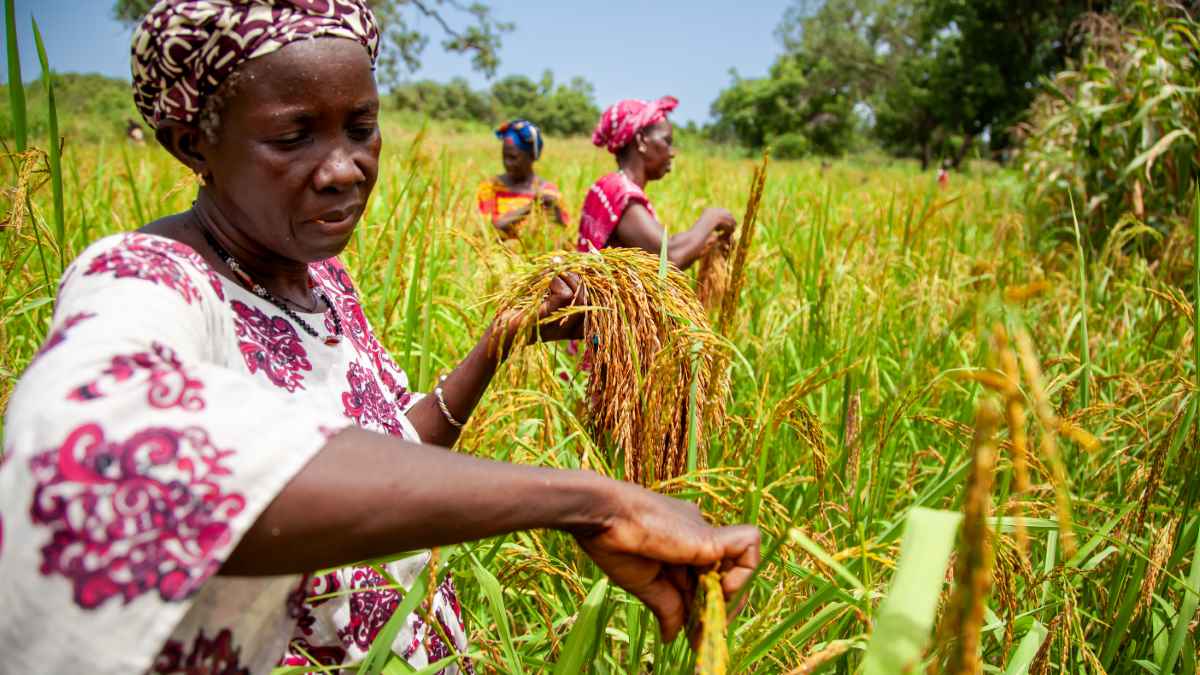The Democratic Republic of Congo (DRC) government and beneficiaries will provide counterpart funding of $51.2 million
ABIDJAN, Ivory Coast, July 19, 2024/APO Group/ —
The Board of Directors of the African Development Bank Group (www.AfDB.org) approved a loan of $260.4 million to the Democratic Republic of Congo (DRC) to help finance the Project to Support the Development of Value Chains as part of its backing for the Agriculture Transformation Programme (PADCV-PTA).
The project, totalling $311.6 million, is being funded by a $250.4 million loan from the African Development Fund, the Bank Group’s concessional window, and another $10 million loan from the Transition Support Facility, a Bank Group mechanism for countries undergoing periods of transition. The DRC government and beneficiaries will provide counterpart funding of $51.2 million.
The project will contribute towards the country’s food self-sufficiency by boosting production of the main stape food crops of rice, cassava, maize and soya. This will significantly reduce large-scale food imports – which amounted to $3 billion in 2023 — 19 per cent of the national budget – and its vulnerability to external shocks, including climate change and armed conflict.
More specifically, the project aims to rebuild the seed capital of the rice, cassava, maize and soya value chains, to improve yields in a sustainable manner and to structure and facilitate the access of stakeholders in these value chains to markets and suitable financing.
Consequently, 295,000 hectares of maize, soya, cassava and rice will be sown, using improved seeds that are resistant to climate change. Some 1,600 farmer field schools and demonstration plots will be set up and run by supervisors for extension activities, including climate-smart farming techniques. The development of irrigated rice-growing areas will enable intensive production levels to be attained, with at least two cycles per year.
The African Development Bank is a strategic partner of the DRC, whose top authorities have decided to make agriculture the priority sector
The project will make inputs available to producers on credit at the start of the cropping season, repayable at harvest time, to build up working capital to facilitate long-term access to said inputs and equipment for the pre-processing of agricultural produce (threshers, winnowing machines, tarpaulins/drying areas) for the cooperatives of rice-growing area operators.
Some 600 km of rural tracks will be upgraded to open up production basins and facilitate access to consumption areas.
The project also aims to organise the value chain stakeholders into cooperative companies so that they can benefit from economies of scale through grouped orders and sales. It will bolster the bargaining power and capacity of small-scale producers to enter into ‘win-win’ partnerships. To facilitate access to funding, the project provides for a shared-cost financing mechanism.
In addition, it will also build the capacity of national agricultural research and seed system stakeholders in order to reestablish the national seed capital.
The project will be implemented in six provinces, namely Kongo Central, Kwango, Maï-Ndombe, Kasaï Oriental, Lomami and South Kivu – areas that are part of the direct supply basins of major cities and that can also supply neighbouring countries. All told, the area covered by the project is home to 24 per cent of the Congolese population, and some 900,000 farming households, including internally displaced people, will benefit directly from the project.
Ultimately, the project should increase yields of the targeted crops by 80 per cent, and boost agricultural production by 1.68 million tonnes per year and private agricultural processing by 4.1 million tonnes over five years, while reducing the DRC’s food imports by $500 million a year. All female heads of household in the area will benefit from the project, as will two million households, on an indirect basis. This pertains to three of the country’s major urban centres, Kinshasa, the capital city, Mbuji-Mayi and Bukavu, where food security will be strengthened for around 21 million inhabitants. The project will also enhance regional integration between the DRC and neighbouring Angola via trade in agricultural products.
Other beneficiaries of the project include government services (agricultural research units, seed sellers, farmers’ organisations), private organisations (processors and service providers), decentralised regional bodies, and women’s and youth organisations.
“The African Development Bank is a strategic partner of the DRC, whose top authorities have decided to make agriculture the priority sector for the country’s development,” said Serge N’Guessan, the Bank’s Director General for Central Africa. “This project, which has just been approved by the Bank Group’s Boards of Directors, will enable the rapid implementation of the National Food and Agriculture Pact, which is part of this national vision.”
Distributed by APO Group on behalf of African Development Bank Group (AfDB).
